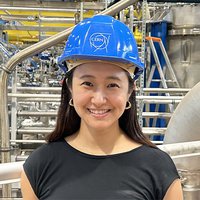Computer & electronics hardware
Karan AHUJA
High fidelity user digital technology based on consumer mobile devices, making it affordable for more people.

Asia Pacific
Ludwik KRANZ
A scalable quantum computing platform based on qubits in silicon engineered on the atomic scale.

Asia Pacific
Di ZHU
Superconducting nanowire detectors and lithium niobate photonics.

Japan
Shion Kubota
Leading the “Q-Pix” project to pave the way to a new era of particle physics.

China
Yuanwen Jiang
Stretchable bioelectrode array through a novel design based on a supramolecule-based topological network.